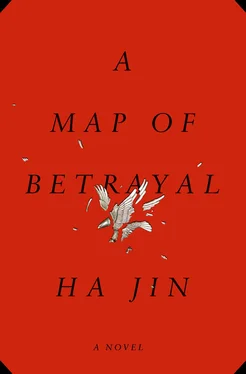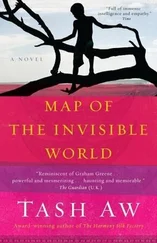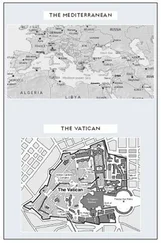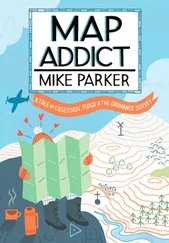“Officers,” I put in, “you ought to accept the fact that racism is still prevalent in America.”
“That we don’t deny,” Clifton said. “But what we have here is something else, more like a crime.”
“What’s so criminal about buying microchips?” Henry asked.
Simpson answered in a snappy voice, “That depends on where the chips went. If they were exported to China, it’s a crime.”
Silence followed. I was pretty sure that Ben had shipped them out of the States. Seeing Henry speechless, I managed to say, “We wish we could tell you something about their destinations, but we really don’t know.”
The officers seemed satisfied with our answers and stood to leave. But before reaching the door, Clifton wheeled around and said to Henry, “One more question if you don’t mind. How much did Ben Liang pay you each time?”
“Two hundred percent of the amount I spent,” Henry told him.
“Can you be more specific?”
“If I spent one thousand bucks on the chips, he’d pay me two thousand.”
“That’s a profit of one hundred percent — a hell of a deal, isn’t it?”
“We’re friends and family, so Ben has been generous to me.”
I was pleased by Henry’s answers, which, in spite of his initial nervousness, came out clear and firm. Nevertheless, the officers’ visit disturbed both of us. After they left, we went on talking about Ben. Knowing of my father’s role as a Chinese spy, Henry began to see the implications of the FBI’s investigation. He was worried about Ben, whom he couldn’t help but suspect of spying for China.
“Do you think Ben is in the same line of work as your father?” Henry asked me, his face twisted a little.
“Probably, but my dad was a vice minister, a big shot. Ben is at most a small-time agent.”
“You mean he might steal technological intelligence?”
“And also military stuff.”
“What else might he have a hand in? Would he smuggle weapons?”
“No way. You have to have powerful backing if you sell weapons on the international market. Only some Chinese princelings can do that. It’s an extremely lucrative business.”
“Anyways, you shouldn’t have invited him over to begin with.”
“Damn it, Henry! You wanted to make money and ignored my warning.”
“All right, I got greedy, I’m to blame myself. But don’t you think we should try to stop Ben?”
“We should, but how?”
“Speak to him.”
“I’m afraid his phones are tapped.”
“By email then.”
“That might not be safe either. Perhaps I should go to Boston next week.”
“No, you should go as soon as you’re done teaching for this week. Let him know of the danger he’s already got himself into. He must quit working for the Communist government.”
I thought to explain that Ben might have a spying mission and that I might not be able to sway him, but I checked myself and agreed to go see him that very week. There had to be something I didn’t know about Ben, and I’d better talk with him in person again.
In 1975, Chairman Mao had once burst out at his lying and bickering staffers, “Damn it, I know more about what’s going on in Nixon’s Oval Office than in my own quarters.” Those words were leaked and set many heads in the U.S. intelligence community spinning with questions and speculations. Did Mao really mean what he’d said? Or was he just bragging, too senile to be cognizant of Nixon’s resignation? Or was the U.S. government already infiltrated by the Chinese Communists? That seemed unlikely. Still, there couldn’t be smoke without fire. Even if Mao’s remark had only a grain of truth, it might imply that the Chinese had compromised the communications channels of the White House. To ensure there was no mole in their midst, the CIA required all its employees who had access to classified materials to take a lie-detector test. Gary had no choice but to follow his colleagues through the procedure. Over the decades, he’d taken the test several times, and now he passed again. He was shaken nonetheless. The instant he was unwired from the machine, he’d broken into a cold sweat, fearing he might have flunked it and be dismissed.
Ever since he’d wrangled seventy thousand dollars out of China, Gary had been anxious that his superiors might change their opinion of him. They’d given him the money because they believed his career at the CIA would last many more years. Then, as soon as he got the cash, he submitted his request for an early retirement. The higher-ups must have been caught off guard by his maneuver. Now, they might even have doubts about his loyalty, and some might suspect he was corrupted by the capitalist society and the American way of life, valuing money above everything. That might account for the long silence after he had sent off his request.
Meanwhile, Gary’s diabetes had taken a turn for the worse. He was thirsty all the time and had to drink water constantly. As a result, he had to empty his bladder every hour. He felt dizzy and sluggish at work, unable to concentrate. At the end of the day he feared he might conk out while driving home. Worse yet, he had grown insomniac and could sleep for only two or three hours at night, which aggravated his symptoms during the day. His doctor prescribed insulin, which helped a lot — after a few injections, his forehead wasn’t numb and tight anymore, his legs stopped itching, and even his taste buds were keen again. From then on, he would carry a syringe and some ampoules with him whenever he left home. He had mentioned the possibility of an early retirement to Thomas and his other colleagues, who had all noticed the sleepy look in his eyes. There’d be no problem with the CIA, much as it valued his linguistic expertise and his insights into Asian affairs. Yet he couldn’t make up his mind, because the insulin injections seemed able to control his symptoms and because there was still no word from China.
He had also talked about his plan to Suzie, who urged him to go back and join his original family. To her mind, the sooner he quit espionage the better — she just wanted him to get out of danger. She even said she might retire to Taiwan eventually, and if so, she’d go visit him from time to time, since now American citizens could travel to China without restriction. Her words made him more inclined to quit the CIA.
Finally, in late July 1980, came the reply from Beijing: an early retirement was deemed inappropriate. Gary’s superiors urged him to stay at the CIA as long as he could. They said the United States had the best medical technology and facilities, and diabetes was not a fatal illness, completely manageable with insulin and a proper diet, so he should string out his mission. He was only fifty-six and should be able to continue working at the CIA for a long time. Meanwhile, they’d make arrangements for his final return. They too would love to see him retired to their homeland, but he should give them time to arrange for his successor, for whom he too should cast around — ideally he could recruit someone within the CIA. They sounded reasonable and firm. The reply made Gary regret having asked for an early retirement. To make amends, he knew he’d have to pull himself together and bear his miseries for a few more years. Perhaps he’d have to outlive his usefulness here.
Yet lately he got homesick all the more. His mind could not escape wandering to a public bathhouse in his hometown, in which, three decades ago, he had often snoozed for an hour or so with a warm towel over his naked body after a hot bath. When he woke up, he’d drunk jasmine tea served by a teenage boy and conversed with an acquaintance or two. If only he could again lie in the steaming pool and then repose on a long bed, free from any care. He knew that most of the traditional bathhouses might have disappeared, but he couldn’t curb his reveries. At the same time, his vision of home had grown cloudy, and it was no longer his village or hometown but somewhere vaguely in China, virtually any place his superiors might assign him to live. Nevertheless, his longing had been growing stronger and more tempestuous day by day.
Читать дальше











